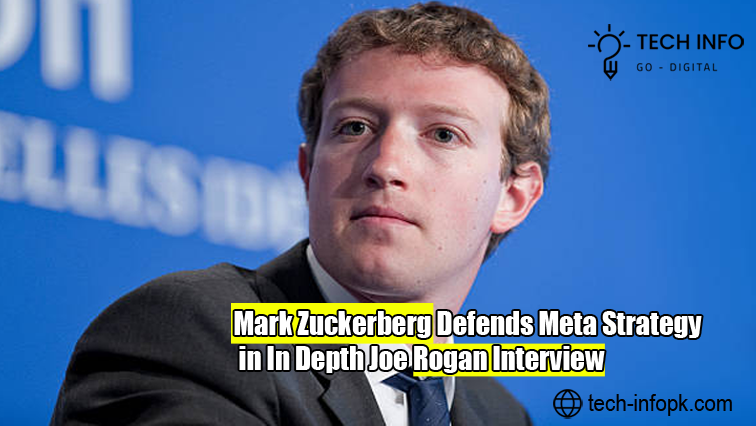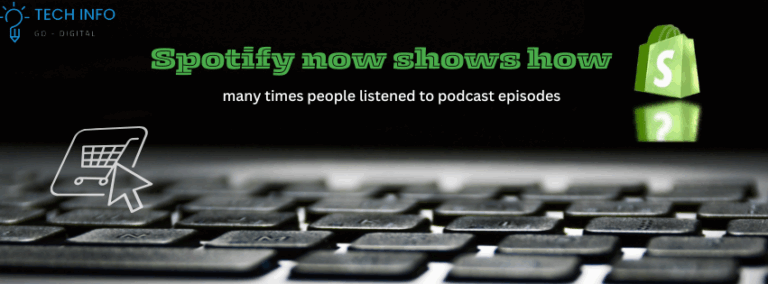In a candid and expansive three-hour conversation with Joe Rogan on his popular podcast, Meta CEO Mark Zuckerberg addressed the tech giant’s controversial decision to pivot its content moderation policies. The conversation touched on various aspects of Meta’s new direction, sparking discussions on free expression, community-driven oversight, and the evolving role of social media platforms. Zuckerberg’s decisions, which have drawn significant criticism from both internal employees and external stakeholders, signal a significant shift in how the company approaches content on its platforms, including Facebook, Instagram, and Threads.
Table of Contents
ToggleMeta Shift from Independent Fact-Checking to Community-Driven
At the heart of Meta’s updated policies is the discontinuation of its independent fact-checking program, a cornerstone of the company’s previous efforts to combat misinformation. This initiative will be replaced with a community notes program inspired by X (formerly Twitter). The new approach places greater responsibility on community members to identify and flag misleading or false content.
Additionally, Meta has raised the thresholds for its automated content filters, which will now lead to fewer posts being automatically removed for violating platform policies. Zuckerberg explained that this change aims to reduce the inadvertent removal of legitimate posts while ensuring that harmful content is still addressed. Although Meta did not officially announce it, reports suggest the company is also phasing out one of its largest diversity, equity, and inclusion (DEI) initiatives.
The core essence of social media lies in empowering individuals to express themselves freely,” Zuckerberg emphasized. “Our original mission has always been about giving people the power to share their voices and creating a world that is more open and connected. Zuckerberg defended these changes as a return to Meta’s foundational mission: empowering individuals to share their voices and ideas freely. “You only start one of these companies if you believe in giving people a voice,” he told Rogan. “The whole point of social media is to give people the ability to share what they want. It goes back to our original mission: to give people the power to share and make the world more open and connected.”
Timing of Changes and Political Context
The timing of Meta’s content moderation overhaul has raised eyebrows. The announcement came just days before Donald Trump’s inauguration as U.S. president. Trump has previously accused Zuckerberg of conspiring against him during the 2020 election and reportedly threatened legal action against him. However, Zuckerberg dismissed speculation that the timing was politically motivated, emphasizing that these changes have been in development for a long time.
“There’s never a perfect time for major updates to content moderation,” Zuckerberg said. “These adjustments reflect years of careful consideration and planning.”
Reflecting on a Decade of Content Moderation Challenges
Zuckerberg acknowledged that managing content on platforms with billions of users is a complex and often controversial task. He recalled two pivotal moments when the demand for ideological censorship surged: the 2016 U.S. presidential election and the onset of the COVID-19 pandemic.
During the pandemic, Zuckerberg revealed that Meta faced pressure from the Biden administration to remove content that later proved to be accurate, particularly regarding vaccine side effects.
Zuckerberg credited X (formerly Twitter) with outperforming Meta in implementing community-driven content moderation. He noted that Meta’s adoption of a similar community notes feature reflects the company’s commitment to learning from its peers and refining its approach.
Broader Cultural and Societal Shifts
Throughout the interview, Zuckerberg and Rogan explored broader trends in American culture, including declining trust in traditional institutions such as government and established media. Zuckerberg highlighted the growing influence of social media creators and podcast hosts like Rogan, who he believes are becoming trusted sources of information for many people.
These cultural shifts are mirrored in Meta’s recent approach to news content. While the company briefly de-prioritized news and political content in its algorithms, Zuckerberg announced that these topics would soon regain visibility on the platform.
Zuckerberg also criticized what he described as the “emasculation” of Western society and corporate America, arguing for the need to reinvigorate a more assertive and resilient leadership style. He pointed to his decision to appoint UFC president Dana White to Meta’s board of directors as a move to bring strong, entrepreneurial leadership to the company.
Reflecting on the challenges of content moderation, Zuckerberg admitted, “From the very beginning, I was deeply concerned about the idea of being the ultimate arbiter of truth for billions of users. It’s an overwhelming responsibility that no single entity should bear.
Free Speech and Controversial Content
Zuckerberg was unapologetic about Meta’s decision to allow more controversial content under its revised policies. He argued that if statements are permissible in public forums such as Congress, they should also be allowed on social media platforms.
Referencing comments made by Trump’s defense secretary nominee Pete Hugest, who opposes women serving in combat roles, Zuckerberg explained that under Meta’s previous policies, such statements would have been flagged or removed for targeting a protected group. Under the new guidelines, however, they will remain permissible.
Zuckerberg also took a firm stance on the importance of open discourse, stating, “If a topic is deemed acceptable for debate on the floor of Congress, it should equally be permissible for discussion on social media platforms.

Conclusion
Mark Zuckerberg’s appearance on Joe Rogan’s podcast provided a rare glimpse into the CEO’s mindset as Meta undergoes one of its most significant strategic pivots. By scaling back centralized content moderation and embracing community-driven oversight, Meta aims to return to its core mission of empowering free expression.
While the changes have sparked intense debate, Zuckerberg remains steadfast in his vision of a platform that prioritizes user autonomy and open discourse. As Meta navigates this uncharted territory, it must balance the benefits of decentralized moderation with the challenges of managing misinformation and harmful content.
This new direction underscores a broader societal shift, where individuals increasingly seek alternative sources of information and challenge traditional power structures. Meta’s success in this endeavor will depend on its ability to foster a platform that champions transparency, inclusivity, and accountability, while staying true to its mission of connecting people and amplifying voices worldwide.





